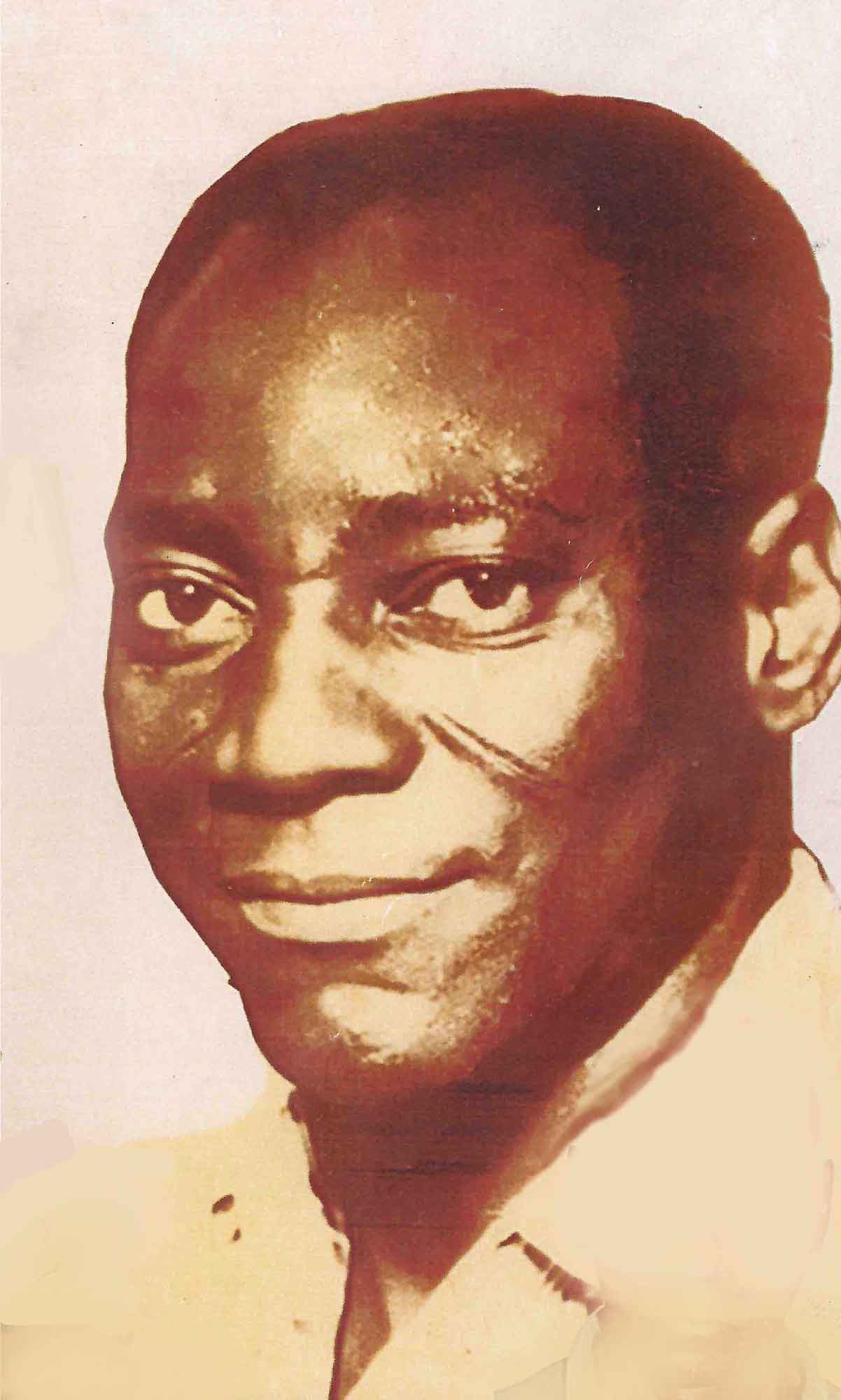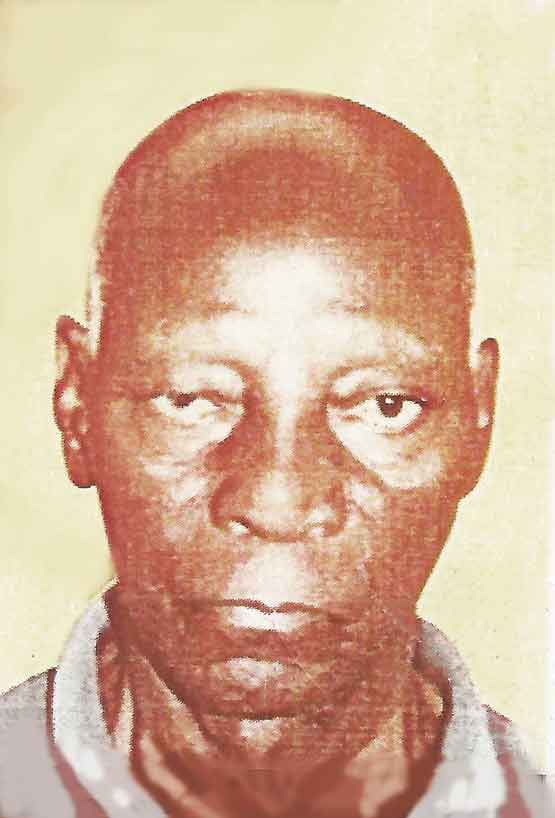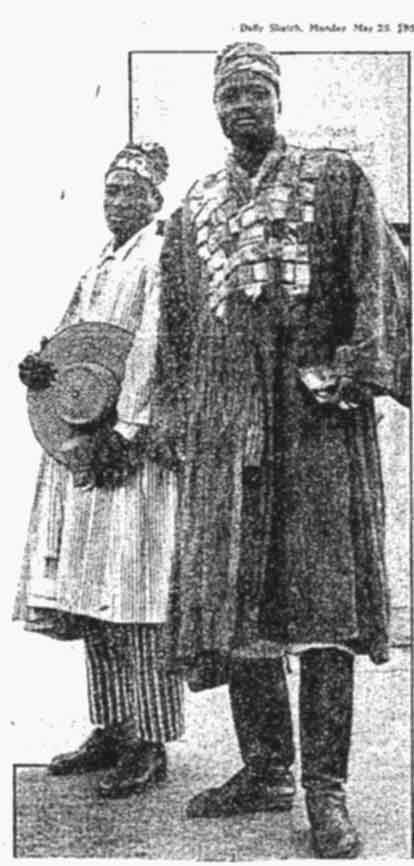 Mr. Abu Gariba (aka Teacher), the former headmaster of Sandema Boarding School and one
of the first pioneers to combine both traditional and modern Bulsa values, expired in Tamale
on June 15, 2014, at the age of 85 years.
Mr. Abu Gariba (aka Teacher), the former headmaster of Sandema Boarding School and one
of the first pioneers to combine both traditional and modern Bulsa values, expired in Tamale
on June 15, 2014, at the age of 85 years.Franz Kröger
Mr. Abu Gariba, One of the First to Combine Traditional and Modern Bulsa Values
Obituary
 Mr. Abu Gariba (aka Teacher), the former headmaster of Sandema Boarding School and one
of the first pioneers to combine both traditional and modern Bulsa values, expired in Tamale
on June 15, 2014, at the age of 85 years.
Mr. Abu Gariba (aka Teacher), the former headmaster of Sandema Boarding School and one
of the first pioneers to combine both traditional and modern Bulsa values, expired in Tamale
on June 15, 2014, at the age of 85 years.
Abu Gariba was born to Sergeant Gariba of Balansa and Madam Asana of Salaga on 1st July, 1929, as the third of seven children. Both parents were Muslims. In 1948 he attended Tamale Boys’ Middle School, completed the Standard Seven and proceeded to the present Bagabaga Training College, where he obtained his teaching certificate. In the late 1960s, he was admitted to the University College of Cape Coast to undertake a diploma programme in education which he completed with English as his major.
Abu Gariba began his teaching career in the Bulsa District, where he taught in a number of
villages: Doninga, Kanjaga and, in the early 1950s, “Old Primary” (Sandema-Suarinsa). In
1962 he was transferred to the Sandema Middle Boarding School, where he served as
headmaster from 1963 until 1967. In 1967 he was transferred from Sandema to Zebilla and
worked as an English language tutor at the then Pupil Teacher Training Centre (PTTC). He
later became the head of this centre.
1963 until 1967. In 1967 he was transferred from Sandema to Zebilla and
worked as an English language tutor at the then Pupil Teacher Training Centre (PTTC). He
later became the head of this centre.
From 1972 to 1978, Abu Gariba was posted to the Municipal Education Office in Tamale as a Circuit Officer, and later he served as a Principal Superintendent handling different schedules at the Office. In 1987 he was promoted to the rank of Assistant Director of Education and put in charge of implementing the new Junior Secondary School (JSS) Programme. He finally retired from public service in 1990.
Although he was born a Muslim, he later converted to Christianity and was baptized by the Christadelphian Bible Society. He became a Sunday school teacher and such an active believer that he opened a branch of the church in Tamale. Apart from agriculture and hunting, Abu Gariba liked reading, especially the Bible and Christian magazines, into his old age. He was loved by his wives as well as his numerous children and grandchildren, although they regarded him as very strict disciplinarian, both with himself as well as with others.
Many episodes of his life are still well known in Ghana and Europe. When Sandemnaab Azantilow was invited to the coronation of Queen Elizabeth II in 1953, Mr. Gariba accompanied his chief and both, dressed in traditional African clothes, attracted the attention of British journalists. The photo of the two visitors was published in the Daily Sketch (May 25, 1953) with a completely misleading caption: “Chief Abu Gariba, ruler of 500,000 people in the northern territory of the Gold Coast, looked imposing when he arrived in London for the Coronation. But his secretary was more colourful.” Abu Gariba chronicled the report of this visit and shared its details with those interested in that visit on their return to the Gold Coast.
 Although Mr. Gariba was a Muslim at that time, together with Rev. Pastor Paton he was the
first to translate part of the Gospel for the Presbyterian Church of Sandema. Under the title
“Labaari nalinsa nga a soa se Marko ale ngmarisi dii la”, the booklet was published in
London in 1962.
Although Mr. Gariba was a Muslim at that time, together with Rev. Pastor Paton he was the
first to translate part of the Gospel for the Presbyterian Church of Sandema. Under the title
“Labaari nalinsa nga a soa se Marko ale ngmarisi dii la”, the booklet was published in
London in 1962.
When the late Prof. R. Schott conducted his first field research among the Bulsa in 1966/67, it was Mr. Gariba, then head teacher of Sandema Boarding School, who taught him the rudiments of Buli grammar, syntax and vocabulary. Rüdiger Schott passed on this linguistic knowledge to his German students, among them Barbara Meier and Franz Kröger.
I saw Mr. Abu Gariba face-to-face only once in my life, while I was working on the Buli-English dictionary. I had heard that he had a book with a list of plant names in Buli, Latin and English. When I came to his house in Tamale, he welcomed me as if we had known each other for ages. I was prepared to make notes from his book, but he said I could take it home and send it back to him whenever I had finished my work.
May the soul of the indefatigable teacher, administrator and translator and the always helpful and amiable man rest in peace, and may all his efforts for the cultural development of Buluk be rewarded.
Note: Parts of this obituary have been adopted from the booklet “Burial and Memorial Service for the Late Abu Gariba” (2014). Cf. also BULUK 7, p. 58-59.